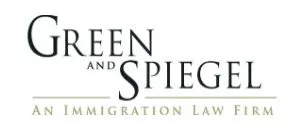The current U.S. administration has now had a full year under its belt since Election Day, and it has been ten months full of surprises for those working in immigration. Candidate and President Trump has occasionally used the Wayne's World post-script zinger of "NOT!" in his live and tweeted statements, and it's somewhat fitting in this context. The administration's most notable memorandum regarding immigration came in early 2017 with the original six-country "ban," which paused the issuance of visas at U.S. Consulates for a list of countries that subsequently changed. A succeeding memo received less media coverage, but importantly set policy initiatives for the interior of the U.S., i.e. individuals already in the U.S. and individuals entering the U.S. at ports of entry.
The most important aspect of that memo was a granting of increased discretion for officers from Immigration and Customs Enforcement (ICE) and U.S. Customs and Border Protection (CBP).
Absent any comprehensive immigration reforms, which looks like the foreseeable future, empowerment of personnel within the Department of Homeland Security (DHS) is the most effective means for bureaucratic change. Unfortunately, it limits our contributions on this blog. Rather than analyzing distinct legislation, we can only offer our extensive anecdotal experience and translate that into trends. One very important trend has been limiting and scrutinizing programs that have previously been used to ease travel into the U.S. Here is an overview of some of the changes affecting those programs.
Visa Waiver
There are 38 member countries of the Visa Waiver (VW) program. Citizens of those nations are permitted to enter the U.S. without a visa issued by a Consulate or Embassy abroad. It instead requires completion of an online form in advance of entry, preferably 72 hours in advance of entry.
Prior to this administration and following terrorist events in Europe, which is home to a large number of VW countries, there had been a review and proposed modifications of the VW program. Overall, however, it was broadly determined that to again require all citizens of those countries to apply for Consular-issued visas would have been an insurmountable task for the Consular posts. In doing so, it would have also significantly harmed business and tourism travel from those countries. Therefore, the program was left intact, and instead modifications were made to the online application.
Our experience is that the stalemate has resulted in this administration increasing scrutiny of VW entries by CBP officers. VW allows for temporary visits for business or pleasure, and CBP officers have always questioned and confirmed proper use of VM by travelers. Our recent experience has seen an increasing tendency for officers to highlight improper use, e.g. intent to stay beyond a visit, inability to show a return to home country, and most prevalent, a determination that an alternative visa classification allowing for work authorization is needed.
The resulting circumstance is removal of the individual from the VM program and the accompanying obligation to apply for a U.S. visa through the U.S. Consular Services for business and pleasure entries, and if applicable the determined work authorized visa. Regardless of the work visa application, an application for a B1/B2 visa for business/pleasure provides the desired result of additional vetting of the applicant through the U.S. Consular Services, and it limits without legislation, the power and ease of the VW program. Again, there are no specific directives to articulate this shift, but it is a trend that we have observed and limits the VW program in a way that adheres to administrative objectives.
Trusted Traveler Programs: Nexus, Global Entry, and Sentri
The Trusted Traveler Programs (TTP) programs have always been presented as highly regulated and privileged memberships. The granting of memberships in these programs requires a preliminary application and in-person interview that includes both a biographical background check as well as an implicit promise to share all relevant information that may change during the course of membership. Also, importantly, it imparts an obligation to always be entering the U.S. under proper status, which is the default status discussed above, visiting for business or pleasure.
This requirement to proactively disclose any new or changing information and clearly adhere to the requirements of visiting for business or pleasure, puts individual membership under a higher level of scrutiny that makes rejection and cancellation of membership a real risk. This is another instance where a program that had been developed to facilitate ease of entry to the U.S., is now the focus of increased scrutiny for continuing or initiating membership. Moreover, we have seen a wider exercise of the "zero tolerance" standard with these programs and an outright cancellation of memberships in many instances.
It is another means to exercise discretionary authority without specific legislation and in-line with the intent of the above-referenced memorandum.
Fraud and Misrepresentation from Years Past
This is a particular area that was mentioned in the above-referenced memorandum, and it has become an area of reinvigorated review and increasingly a grounds for removal. Commission of any "fraud or willful misrepresentation in connection with any official matter before a governmental agency," is grounds for removal, and the memorandum specifically prioritizes removal under those grounds
This is an issue that is particularly relevant to the U.S.-Canadian border. U.S. and Canada allow visa-exempt entries for their citizens between the two countries when visiting for business or pleasure. The prevalence in Canada for formerly third-country nationals to become Canadian citizens and then seeking entry to the U.S. makes those individuals particularly vulnerable. Many individuals who ultimately call Canada home and themselves Canadian often maintain long immigration histories that have involved previous stays in the U.S. as well as previous U.S. visa applications. Yet, with their new Canadian citizenship, the misinterpretation is often that new citizenship brings with it a new immigration record. That is not true. With the "Beyond the Border" security initiative agreed upon between the U.S. and Canada in 2011, the ongoing shared information between the two countries is constantly deepening and widening to cover citizens of both countries. As a result, historical information related to those "new" Canadians is increasingly available to CBP officers, and within that cross-referencing to U.S. records can reveal: overstays, false information on U.S. visa application under that former citizenship, denials of entry, etc. Those instances of fraud and misrepresentation are then increasingly used as grounds for denial of entry and requiring an entry waiver, as well as grounds for expedited removal and a five-year bar to entry.
Suggested Solutions
Overall, our suggestion is to be vigilant about past indiscretions and the possibility that those indiscretions limit the ability to enter the U.S., regardless of citizenship. The violation is tied to an individual and not a passport. In addition, every traveler must be prepared to discuss the current trip's purpose, be aware of the limitations of standard business visitor classification, as well as showing an intent to return home following the visit. If there are issues with your activities being potentially considered "work" in the U.S., it is best to address that with your employer first. These programs were introduced for expediency, but they have always been a privilege. The current trend is to focus on the latter with less concern for the former. Therefore, the only way to counter increased scrutiny is to be cautious and aware of your own vulnerabilities for the requested U.S. entry status.
The content of this article is intended to provide a general guide to the subject matter. Specialist advice should be sought about your specific circumstances.

